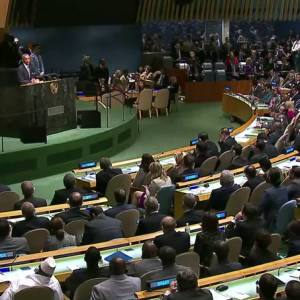We all have a gift for ingratitude. It’s so easy to take for granted how we live today, and to forget that our ancestors lived much harder lives. In earlier generations people died at every age, including newborns, children, teenagers, and women in childbirth. Epidemics like cholera, for which there was no cure, cut a lethal swath through cities; chronic malaria afflicted hundreds of thousands. American life expectancy is now 80 years—childbirth and childhood have never been safer, killer epidemics are rare, and American malaria has vanished.
Why the change? Because of the industrial revolution. It improved standards of living and brought innovations in nutrition, medicine, and public health. It transformed a situation where poverty and vulnerability were normal into one where they were exceptional. Even America’s poorest are rich by historic standards.
The only way out of mass poverty is industrialization. Every rich country is industrial. All the poorest ones are not. We can only understand the global warming debate by keeping this basic truth in mind. If the governments of China and India seem uncooperative, that’s because they understand a lesson many Americans seem to have forgotten—that their first and greatest task is to overcome mass poverty. Only when their citizens can stay alive will they take an interest in overcoming the side effects of industry.
In India, life expectancy in 1960 was just a little over 42 years. Today it’s 66. The figures for China are even more dramatic, with life expectancy increasing in those years from 36 to nearly 76. Both countries have been industrializing rapidly, and there’s a close cause-and-effect relationship between more productivity and longer life. Millions who would have died owe their lives to a system that burns fossil fuels and pumps carbon dioxide into the atmosphere. It’s a paradox but it’s also true.
In a recent New York Times op-ed, Gail Collins summarized many of the concerns raised by global warming—flooding in Miami, shrinking polar ice caps, reduced penguin populations, and heat waves. “There is very little on the plus side,” she added. Actually, there is a lot on the plus side, including tens of millions of people who would have lived wretched lives and died premature deaths. The fact that they haven’t died, and that they live far away, makes it difficult for us to pay attention to them. They are like Sherlock Holmes’s dog that didn’t bark in the night.
This does not mean that we should not worry about global warming. Of course we should keep working on cleaner technologies, greater efficiency with the ones we already possess, and sensible policies that provide incentives for reducing emissions. The USA, Western Europe, and the Pacific Rim countries can take the lead with such programs because they are wealthy. Only a highly sophisticated industrial society like ours could even have developed devices capable of measuring parts-per-million of gases in the atmosphere, and the computers whose projections can sometimes seem so ominous.
Still, the trade-off is clear. If we have to weigh actual lives saved against hypothetical future ones endangered, we are right to choose the actual ones. Besides, far more future lives will end prematurely without the continued spread of fossil-fueled industrialization than with it.

